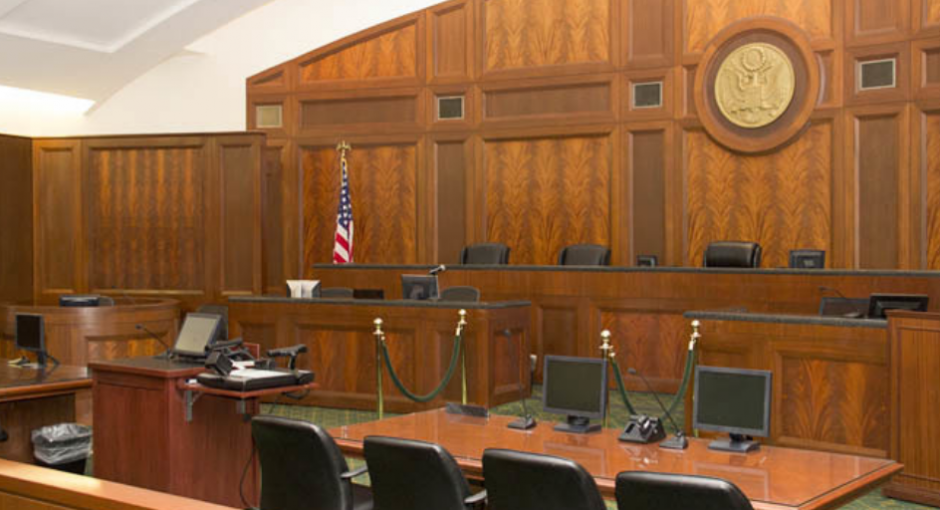Drug manufacturers Eli Lilly and Novo Nordisk’s denials of 340B drug discounts when covered entities use contract pharmacies are causing entities to lose more than a combined total of $125 million per month in 340B program savings, federal filings in lawsuits over the companies’ actions show.
Hospitals, health centers, and clinics are losing a total combined average of $62.3 million per month in 340B program savings due to Lilly’s denials of 340B pricing when drugs are shipped to contract pharmacies, the government said in a June 25 motion in Lilly’s lawsuit. Lilly’s policy applies to all covered entity types.
Novo Nordisk’s policy applies to hospitals only. They are losing a total combined average of $63 million a month in 340B program savings due to the company’s actions, the government said in a June 22 filing in Novo Nordisk’s lawsuit against the U.S. Health and Human Services Department (HHS).
Earlier this month, in a filing in Sanofi’s 340B contract pharmacy lawsuit, the government said all covered entities types combined are losing a projected $3.2 billion a year in 340B program savings due to Sanofi, Novo Nordisk, Lilly, AstraZeneca, Novartis, and United Therapeutics’ restrictions on 340B pricing. It pegged monthly 340B savings losses due just to Sanofi’s actions at $43.4 million. The government likely will provide comparable data for AstraZeneca and Novartis soon in court filings in those two companies’ lawsuits against HHS.
Plethora of Lawsuits
All six companies have stopped offering 340B pricing when their drugs are shipped to contract pharmacies, to varying degrees. All but United Therapeutics have sued HHS and the U.S. Health Resources and Services Administration (HRSA).
Lilly, Novo Nordisk, Sanofi, AstraZeneca, are suing HHS’s over its Dec. 30 advisory opinion that drug makers must provide 340B discounts when covered entities use contract pharmacies to dispense drugs. Lilly and Sanofi also are suing over HRSA’s 340B administrative dispute resolution (ADR) final regulations. Novartis is suing only over HRSA’s May 17 finding that its contract pharmacy policy violated the 340B statute.
It its May 17 letters, HRSA told the six manufacturers their restrictions on discounts in the 340B contract pharmacy setting violated the 340B statute and had to be reversed immediately. HRSA told the companies they had to repay covered entities for overcharges and warned them that continued noncompliance could result in civil monetary penalties.
HHS withdrew its 340B advisory opinion on June 18. HHS and Lilly, Novo Nordisk, AstraZeneca, and Sanofi now are fighting in court now over HRSA’s May 17 violation letters and whether HHS’s advisory opinion is moot or still relevant.
Novo Nordisk and Lilly recently amended their complaints against HHS and HRSA to include claims related to the 340B program violation letters. (Sanofi also amended its complaint.) The government was responding to Novo Nordisk and Lilly’s updates to their lawsuits in its court filings in those two cases last week.
DOJ: Lilly Filing “More Extreme Than That of Its Peers”
In its June 25 filing on HHS’s behalf in Lilly’s lawsuit, the U.S. Justice Department (DOJ) said Lilly’s 340B contract pharmacy policy is “more extreme than that of its peers,” and “has increased profits for Lilly while dramatically curtailing much-needed funding for safety-net providers and forcing patients to pay more for medications or adjust their medication regimen.”
Lilly, Sanofi, and Novo Nordisk “represent 99%of 340B insulin volume,” DOJ said. Two of Lilly’s insulin products, Humalog and Humalin, are penny-priced under 340B, and alone account for 21% of 340B insulin volume, the government said. Lilly and its fellow insulin manufacturers’ 340B restrictions “have been particularly devastating for diabetic patients,” DOJ said.
DOJ told the court that an Illinois hospital informed HRSA that, due to Lilly’s 340B pricing restrictions, patients with diabetes “have had to switch from long-acting insulins to insulins that do not work as well for them, are of lesser quality, require more injections per day, or are more difficult to take (i.e., require a vial and syringe to inject).”
An Iowa health center told HRSA that Lilly’s restrictions are directly harming low-income patients who previously had received the full benefit of the safety-net provider’s discounts,’ the government told the court. “The people most affected by Lilly’s actions are those patients helped by our 340B-direct-pricing program,” the health center told HRSA, DOJ said. “These patients are now left with few options for obtaining life-saving medicines.”
Lilly’s next filing in the case is due on July 14. U.S. District Judge Sarah Evans Barker has scheduled a July 30 hearing on all pending motions in the lawsuit.
DOJ’s Novo Nordisk Filing
In its June 22 filing in Novo Nordisk’s lawsuit, DOJ said Strong Memorial Hospital in Rochester, N.Y., told HRSA that the drug maker has denied it 340B prices on covered outpatient drugs and instead charged it up to $1,291 per unit for medications. “These orders from Novo totaled several hundred thousand dollars in lost 340B savings,” HHS said. The hospital told HRSA its inability to buy drugs at the ceiling price “deterred the hospital from purchasing drugs altogether,” DOJ said.
“Countless other complaints against Novo echo these concerns,” DOJ said.
U.S. Chief Judge Freda Wolfson of the District of New Jersey has told the parties that she will “expeditiously consider” their latest arguments in the case.


